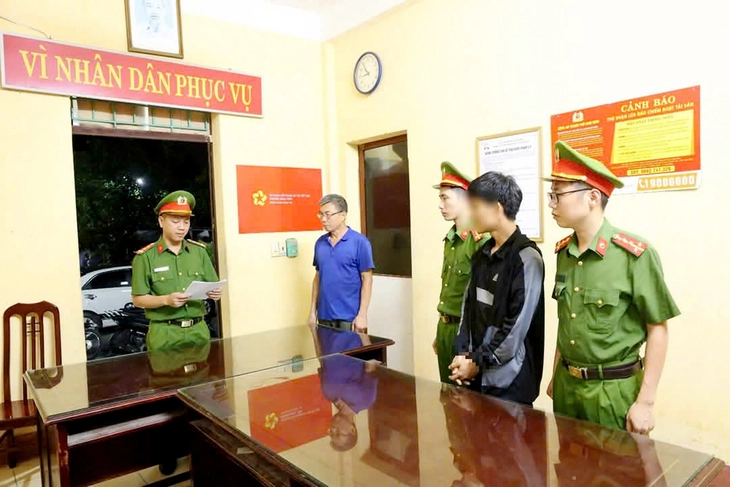
NVT at the police station - Photo: Nam Dinh Police
Nam Dinh Provincial Police said on May 7 that the Provincial Police Investigation Agency had issued an order to detain a person in an emergency and temporarily detain NVT (33 years old, residing in Xuan Hong commune, Xuan Truong district, Nam Dinh province) to investigate the act of "disturbing public order".
The young man in Nam Dinh who beat a nurse at the provincial General Hospital and was detained is a consequence of his hot-headedness in a moment of losing control, and is also a lesson for medical staff to avoid unnecessary risks for their agencies, families and themselves.
Pay a high price for a moment of anger
According to the Nam Dinh Provincial Department of Health , the medical staff member who was cursed at and hit in the head and face by the patient's son was a male nurse named NVH, working at the general surgery department of Nam Dinh Provincial General Hospital.
According to the hospital report, on April 25, Mr. NVK (68 years old) came to the emergency room at Xuan Truong District Medical Center with acute pancreatitis, gastrointestinal bleeding, cirrhosis, diabetes, and kidney failure. His condition did not improve, so he was transferred to the Department of Gastroenterology at Nam Dinh Provincial General Hospital.
On the morning of May 4, the patient complained of fatigue and difficulty breathing. The doctor examined him, found that his blood pressure was unmeasurable, and transferred him to the intensive care and anti-poisoning department. At 6:30 a.m. the same day, the patient's heart and breathing stopped. About 30 minutes later, the patient's pulse returned.
At around 7:50 a.m., the patient's family rushed in to beat and scold the doctor. However, the team continued to treat the patient. At 3:40 p.m., the patient went into cardiac arrest for the second time and was given intensive care. At around 4:20 p.m., the patient was in a coma, with a rapid heart rate, regular lung ventilation, and a soft abdomen. The family wrote a request to be discharged from the hospital.
According to Nam Dinh General Hospital, on the morning of May 4, male nurse NVH was assigned to the intensive care and anti-poisoning department to complete the handover procedures and assist the patient's family. He was then scolded and beaten on the head and face by the patient's family.
The on-duty team took the male nurse to the hospital for examination and invited the police to come in. The male nurse was then treated at the hospital's neurosurgery department with a diagnosis of head and facial trauma.
NVT's initial statement at the investigation agency showed that the cause of the incident was because he thought nurse H. was slow in providing medical intervention when his father's condition worsened.
Notably, this is not the first time that medical staff have been assaulted. Previously, there have been many unfortunate incidents in which the victims were doctors and medical staff who directly examined and treated patients.
Typically, on April 25 at Thanh Ba District Medical Center, Khuat Van Sinh (born in 1984, residing in zone 24, Hanh Cu commune, Thanh Ba district, Phu Tho province) committed an act of harming the health of medical staff.
According to the police, Mr. Sinh's son, KBL (born in 2013), was in a traffic accident and had to be taken to the Thanh Ba District Medical Center for emergency treatment. While doctors and nurses were performing emergency treatment on L., Mr. Sinh kicked a male nurse in the stomach, causing public outrage. Meanwhile, the doctors and nurses continued the emergency treatment and were able to save the child.
What to do to "cool down" hot heads
According to the Director of the Department of Medical Examination and Treatment of the Ministry of Health, Ha Anh Duc, recent incidents of medical staff being beaten all took place in treatment areas, with patients' relatives present.
In addition to thoroughly resolving any problems that may arise from medical staff, such as further reforming the contact and explanation process for patients, further improving the quality of care and medical examination and treatment, hospitals should also not allow relatives of patients to enter emergency areas or perform procedures on patients because unnecessary misunderstandings may arise while waiting, thereby also avoiding the risk of conflict.
In addition, it is also necessary to strengthen security at hospitals to ensure the safety of doctors and nurses, helping them feel more secure in performing their duties, while ensuring the security and safety of patients and their families.
In recent years, the health sector in Ho Chi Minh City has implemented many solutions to ensure the safety of medical staff. In fact, the number of incidents of disorder and attacks on doctors and nurses, especially in the emergency area, has decreased significantly.
Specifically, in 2019, to address the common concerns of hospitals when there are incidents of insecurity and disorder in the hospital despite having security guards, the health sector has established a "security fence" to respond to emergencies when there are incidents, which is the "Code grey" system. This system was researched and applied by Gia Dinh People's Hospital since 2019, then expanded by the City Department of Health to medical facilities in the city.
The special thing is that when the system is activated, immediately the assigned forces from security guards to security and order specialists in the hospital, to the timely support and assistance of the police will quickly arrive at the scene.
Dr. Nguyen Anh Dung, deputy director of the Ho Chi Minh City Department of Health, said the "Code grey" system has been applied by the health sector for many years with the coordination between local authorities, police and hospitals. In fact, in recent years, the number of incidents causing disorder at medical facilities has decreased significantly.
Typically, at Gia Dinh People's Hospital in 2019, there were 31 cases of disturbing public order (level 1) that were quickly handled by the hospital security team and 2 cases of disturbing public order with the risk of threats, assault, and the use of weapons such as sharp knives (level 3), all of which were handled quickly, effectively, without causing harm to people and property thanks to "Code grey".
Not only that, the city's health sector also requires hospitals to organize emergency screening procedures, limit admission to the emergency department for cases that do not have emergency indications, instead admit patients who meet the criteria for hospitalization or deploy an inpatient room for short-term treatment and monitoring (a few hours) for cases that do not meet the criteria for emergency admission or hospitalization.
"The 4 or 6 hour rule"
The city's health sector has applied the "4-hour or 6-hour principle" as the maximum time for patients to stay in the emergency department and delegated authority to emergency department doctors to transfer patients to inpatient departments, not allowing patients to stay too long.
In addition, hospitals have increased communication with patients' relatives during their stay in the emergency department to help create peace of mind and reduce unnecessary anxiety and frustration. Hospital leaders proactively coordinate to increase staff for the emergency department in situations where the number of patients suddenly increases (such as mass poisoning, accidents, etc.).
In particular, increase the allocation of hospital security guards to be on duty at the emergency department, instruct relatives of patients to comply with the regulations of "1 patient, 1 relative", and arrange locked cabinets for relatives of patients to store their belongings before entering the patient's room area.
Security guards are responsible for immediately contacting the police station where the hospital is located to receive timely support when detecting situations of disturbance or threat to medical staff.
Source: https://tuoitre.vn/de-khong-xay-ra-nhung-vu-hanh-hung-nhan-vien-y-te-20250509073729852.htm





![[Photo] Prime Minister Pham Minh Chinh receives leaders of Excelerate Energy Group](https://vphoto.vietnam.vn/thumb/1200x675/vietnam/resource/IMAGE/2025/5/29/c1fbe073230443d0a5aae0bc264d07fe)

![[Photo] Prime Minister Pham Minh Chinh attends the event "Digital transformation of the banking industry by 2025"](https://vphoto.vietnam.vn/thumb/1200x675/vietnam/resource/IMAGE/2025/5/29/0e34cc7261d74e26b7f87cadff763eae)
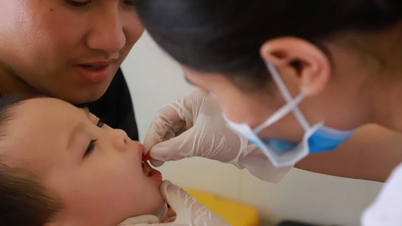

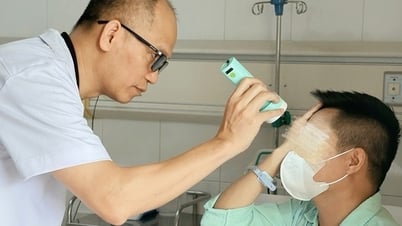

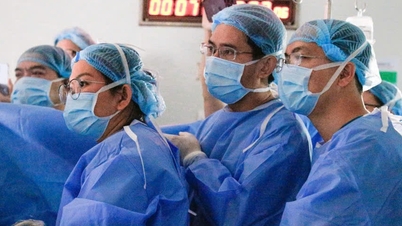
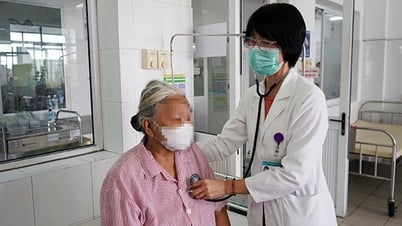

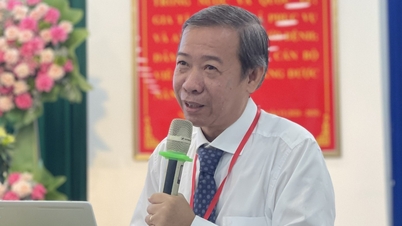












































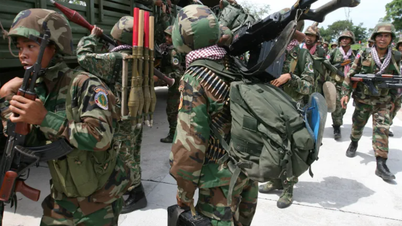







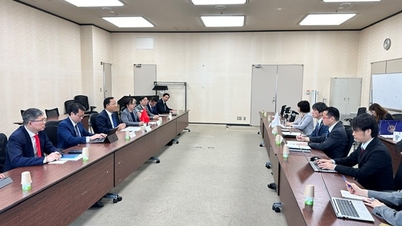



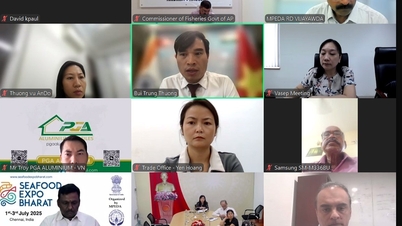


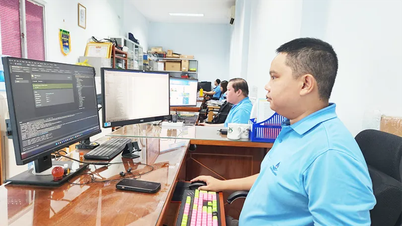


















Comment (0)